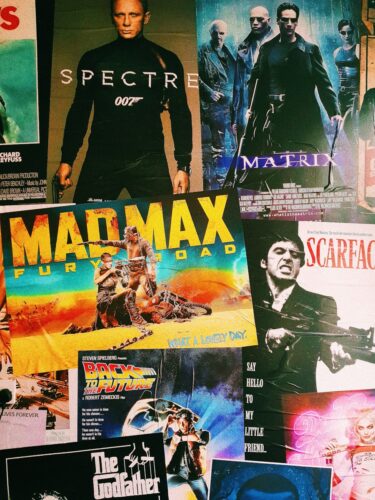In the realm of cinematic classics from the late 1980s, two films stand out as enduring pillars of storytelling and cultural impact: “When Harry Met Sally” (1989) and “Dead Poets Society” (1989). Despite their distinct genres and narrative styles, these movies share common ground in their exploration of human relationships, the pursuit of personal identity, and the timeless quest for authenticity.
Plot and Themes
“While Harry Met Sally” is a romantic comedy directed by Rob Reiner, following the evolving relationship between the titular characters, Harry and Sally, portrayed by Billy Crystal and Meg Ryan, respectively. Through a series of chance encounters over the span of years, the film delves into the complexities of friendship, love, and the age-old question of whether men and women can truly be just friends.
On the other hand, “Dead Poets Society,” directed by Peter Weir, transports viewers to the halls of a conservative boarding school where English teacher John Keating, played by Robin Williams, inspires his students to seize the day and embrace the power of poetry. The film explores themes of conformity, individuality, and the tension between tradition and self-expression.
Character Dynamics
Both movies feature a diverse cast of characters whose interactions drive the narrative forward. In “When Harry Met Sally,” the chemistry between the pragmatic Harry and the idealistic Sally fuels the romantic tension that underpins the story. Their witty banter and genuine moments of vulnerability resonate with audiences, making them relatable and endearing protagonists.
Similarly, in “Dead Poets Society,” the dynamic between Mr. Keating and his students serves as the heart of the film. Through his unconventional teaching methods and passion for literature, Keating challenges the young men to break free from societal expectations and pursue their passions, ultimately leaving a lasting impact on their lives.
Cinematic Style
Both films are characterized by their timeless storytelling and nuanced character development. “When Harry Met Sally” employs a classic romantic comedy formula, punctuated by memorable dialogue and standout scenes like the infamous diner conversation about faked orgasms. Meanwhile, “Dead Poets Society” utilizes a more dramatic narrative structure, underscored by poignant moments of introspection and the exploration of profound themes.
Cultural Impact
Decades after their release, both “When Harry Met Sally” and “Dead Poets Society” continue to resonate with audiences worldwide. Their enduring popularity is a testament to their universal themes and enduring relevance in popular culture. Whether it’s the iconic line “Carpe diem. Seize the day, boys. Make your lives extraordinary” from “Dead Poets Society” or the timeless debate about the nature of male-female friendships sparked by “When Harry Met Sally,” these films have left an indelible mark on the cinematic landscape.
Conclusion
In conclusion, “When Harry Met Sally” and “Dead Poets Society” stand as shining examples of the power of storytelling to capture the human experience. Despite their differences in genre and tone, both films offer valuable insights into the complexities of relationships, identity, and the pursuit of authenticity. Whether you’re in the mood for a heartwarming romantic comedy or a thought-provoking drama, these two iconic movies from the late 1980s are sure to leave a lasting impression.









